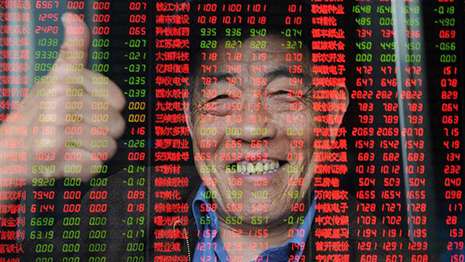China’s Shanghai Composite Index on Thursday rose 2.2% to reclaim the critical 3,000 mark. The benchmark’s steep decline on Monday triggered a massive global selloff and stoked worries about China`s economic health.
The gain was notable given that China’s markets took an exception the previous day to decline after markets steadied across the globe.
Japan’s Nikkei average closed up 1.1 percent after rising 3.2% the previous day. European markets took their cue from Asia, with Germany’s DAX opening more than 2% higher. British and French shares were also up at similar rates.
The rallies came after US shares rose sharply, with the Dow Jones industrial average marking the third-biggest surge of all time at 600 points or 4%.
Soothing words from President of New York Federal Reserve Bank William Dudley led to the rally. His remarks that an interest rate hike in September seems “less compelling” eased concerns that the move would put further pressure on markets.
US investors are worried that raising interest rates could take the steam out of the economy and lead to a downturn. Those concerns led to panicked selloff of shares on Monday which came after declines in China.
Not lifting interest rates, however, could signify that the global economy remains exceptionally weak. This means the recent trouble is far from being over and more turmoil could be down the road.
The Chinese government’s intervention to devalue the yuan triggered fears the world’s second largest economy might be in a worse shape than thought.
China has emerged as the bellwether of the world’s economic health and its market developments are having far-reaching effects.
Crude oil markets were also boosted from the rebound, with US futures rising 2.2% to $39.45 a barrel. Europe’s benchmark Brent rose 2.3% to $44.11.
The oil market, which is already under pressure from a huge supply glut due to Saudi Arabia’s maximum production, took a double whammy from the recent financial turmoil, with prices slumping to 6.5-year low.
More about:
















































